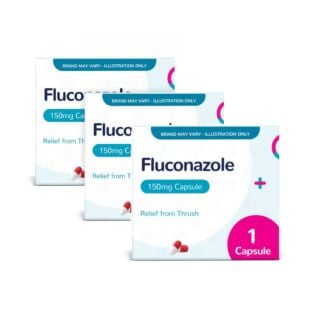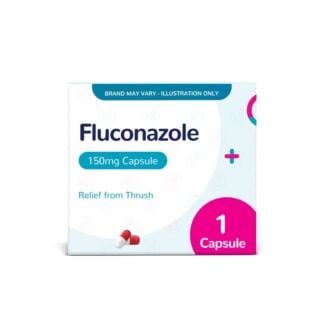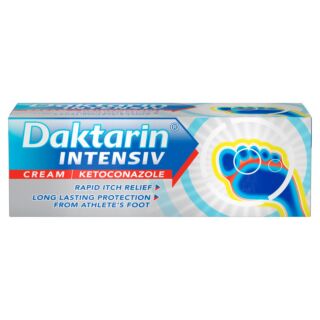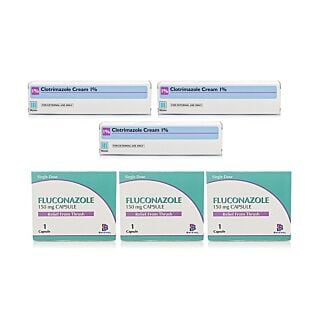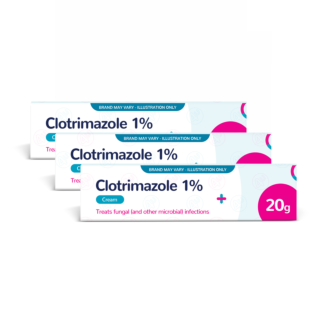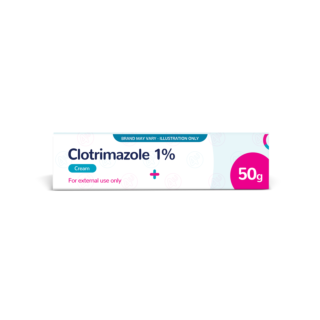What is fluconazole and how does it treat thrush?

So, your doctor has recommended fluconazole and you’re heading to the pharmacy to get your hands on some, but what is this medication?
You're pretty sure fluconazole is for thrush or fungal infections, but what does it do to send that itchy, icky infection packing?
If you'd like to know everything there is to know about your medication before you take it then you’ve come to the right place.
Let’s take a look at what fluconazole is, what it’s used for, and when you should be using it.
What is fluconazole used for?
Fluconazole is used to treat fungal infections, which are also known as yeast infections.
One of the most common yeast infections is thrush, which can affect different areas of your body, including the vagina, the penis, and the mouth and throat.
Fluconazole can be used for lots of different fungal infections, so let’s have a look at where it’s most effective.
Fluconazole for thrush
Fluconazole is one of the most common treatments given for vaginal thrush and thrush that affects the penis, which are both caused by fungi called Candida.
Not only can a single treatment of fluconazole treat your thrush effectively, but it can be used by couples who pass the infection to each other when they have sex.
If you and your partner have picked up thrush and can’t seem to get rid of it, this could be the answer to finally shaking that annoying infection.
Fluconazole for oral thrush
Oral thrush is particularly common in babies and children, but it can be passed to adults, including mothers if they’re breastfeeding a child who has oral thrush.
Fluconazole isn’t always the first port of call when treating oral thrush, especially as it shouldn’t be taken by babies or children, but it can be used by adults in combination with other antifungal treatments to tackle the infection.
You’ll usually treat oral thrush using an antifungal called miconazole, which is available in a sticky gel that clings to the fungi in the mouth and throat and gets to work on clearing the infection.
Fluconazole and miconazole can be used together, so don’t be surprised if your doctor recommends that you take one fluconazole capsule while you’re using miconazole, as a two-pronged attack against your infection.
[Product id='4457']
Fluconazole for skin infection
If you have a fungal skin infection, such as athlete’s foot, then your first treatment option will probably be an antifungal cream, powder, or spray.
These work directly in the area of infection and should clear it up within a few days.
However, if your infection is particularly severe your doctor or pharmacist may recommend taking a fluconazole capsule as well, as this can help to tackle the infection from the inside as the antifungal cream works outside.
Fluconazole for ringworm
Despite its name, ringworm has nothing to do with worms but is actually a fungal infection that can appear all over the body, including the groin and scalp.
Ringworm looks like a small, red or silver, circular rash on your skin, and it can make your skin feel itchy, dry, and irritated.
Like other skin infections, you’ll probably use a cream to treat ringworm originally and will be advised to take fluconazole if your infection is severe.
Are fluconazole and Diflucan the same thing?
Diflucan is a prescription-only medicine that’s used to treat thrush and other fungal infections, and its active ingredient is 150mg of fluconazole.
Diflucan is a brand name for fluconazole, and you’ll usually find that unbranded 150mg fluconazole tablets or capsules are cheaper than Diflucan.
Canesten is another brand of products that uses fluconazole as the active ingredient in its thrush capsules and tablets and picking up an unbranded option could net you a serious bargain!
On top of this, Canesten and unbranded fluconazole are both available from your pharmacy without a prescription, which means that getting hold of these treatments could be easier as well as cost-effective.

Are fluconazole and clotrimazole the same thing?
Fluconazole and clotrimazole are not the same things, but they are a similar type of treatment.
They both work as antifungal medicines and are used as active ingredients in lots of different thrush and fungal infection treatments.
Fluconazole usually comes as a tablet or capsule, whereas clotrimazole is available in creams and pessaries, and doctors and pharmacists often recommend that you use both medications at the same time to treat thrush.
When used together, these treatments help you to manage different thrush symptoms while they treat the infection, easing itching and inflammation and making you feel more comfortable until your infection has passed.
However, you should always speak to your doctor or pharmacist before using any two medications at the same time, just so you can be sure that the combination is right for you.
Is fluconazole an antibiotic?
Fluconazole is not an antibiotic medication, which is good news for those who find that they get fungal infections when they take antibiotics.
This happens because antibiotics kill both good and bad bacteria in your body when they treat infections, causing an imbalance that can give fungal infections the chance to thrive.
Fluconazole is an antifungal medication, which means it tackles the fungi that cause infections, rather than bacteria as a whole, giving you targeted relief from the symptoms of your infection.

Is fluconazole a steroid?
Fluconazole is not a steroid, and it doesn’t treat the same types of conditions that steroids do.
For example, some steroid creams and tablets can help to treat eczema and contact dermatitis, which can happen when your skin comes into contact with an irritant.
Because this doesn’t happen because of an imbalance in the natural yeasts in your body, antifungals like fluconazole can’t do much to help.
In the same way, steroids can’t do much for thrush or other fungal infections, so they won’t be recommended by your doctor or pharmacist if you’re looking for help with those.
Is fluconazole available over the counter?
Fluconazole is available over the counter from pharmacies like us, so you can buy it whenever you need it without a prescription.
When you go to pick it up, the pharmacist will ask you a few simple questions that will help them to be sure that fluconazole is the right treatment for you, and if they agree that it can help you can make your purchase and be on your way.
Some people may find going through this process in a local pharmacy to be a bit embarrassing, which is why we make sure that we have fluconazole in stock and available to buy online.
You can answer the questions our pharmacists need to know in private and have the treatment delivered to your door quickly and discreetly.
No more announcing that you have thrush in the middle of the pharmacy for you!

Can I take fluconazole if I’m pregnant?
Thrush is a common problem during pregnancy, as your hormones can wreak havoc on your body’s natural balance of yeast and fungi.
You can take fluconazole during pregnancy or if you’re breastfeeding, but you should only do so if your doctor or pharmacist tells you that it’s right for you.
You should limit your intake of medications as much as you can during pregnancy, and your doctor may wish to recommend other treatments depending on the severity of your infection and whether they think fluconazole will be safe for both you and your baby.
It’s always better to be safe than sorry!

So now we’ve told you everything you need to know about fluconazole, you can take your medication with some serious confidence!
Remember though, always speak to your doctor or pharmacist if you have any questions about your medicines or health conditions, they’ll be able to help you out and answer any of your burning questions, no problem!

